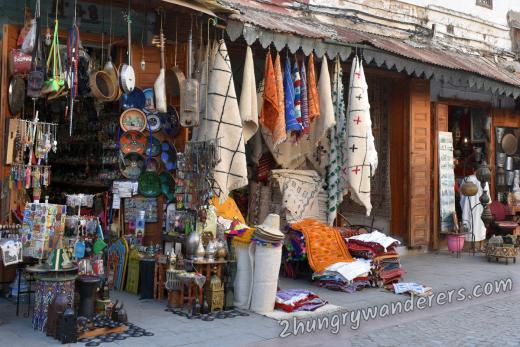
Traveling gives the great opportunity to submerge yourself in different cultures, however, knowing some of the peculiarities in advance may help you have a better holiday. Morocco can surprise visitors in many ways, so here I have compiled a list of things I would've liked to know before going there. What was your experience in Morocco - let us know in the comments below.
Reading this article one might think that Morocco has many drawbacks, but being mentally prepared for the worst is just one side of it, don't forget to check our posts about Morocco and the great times we had there.
So here it is, the list of things to know before going to Morocco to truly enjoy this amazing country:
Scammers
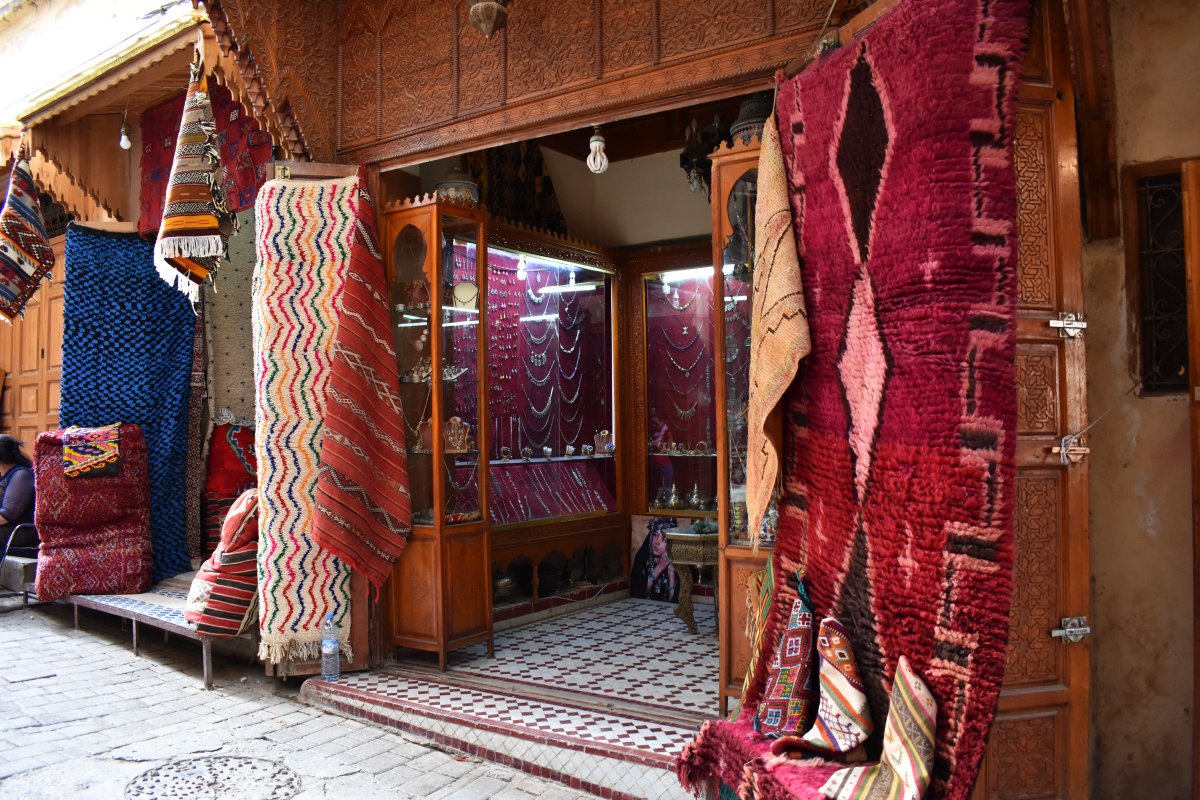
One of the things one may encounter in a country with long history as a tourist destination are experienced and skilled scammers. Best thing you can do is just accept it in advance, it can happen to anybody and there is no reason to ruin your holiday over some small amount of money. What you can do is mitigate and do your best to protect yourself.
One general rule to remember is that nothing is free. Everything costs money and you may be asked to pay for advice, walking, talking, guiding. Somebody helped you get into a parking spot? He might ask for money. You got lost and a friendly local is happy to take you to your hotel or a main street? This favor may not be for free.
Another rule that will help you is to negotiate the price in advance. Never accept a service or goods before clarifying how much you are going to pay for it. Negotiating is the norm, haggle knowing your limit in advance, do not go over it. Be firm, without being rude when negotiating or declining an offer.
Pay only after receiving the agreed service and only if the service was performed as agreed. Even if the agreed price is more than generous it is almost mandatory to be asked for a tip. Feel free to decline with a smile - if there was a price agreed then a tip on top of it is just a tourist fools tax.
There is a special side note regarding restaurant scams in Morocco. Sometimes items you haven't ordered will be brought to your table - side dishes, salads, water. One might expect those to be free, but that's not always the case. Before you touch anything you haven't ordered make sure you know how much it costs. Usually they try to scam people with small amounts, but there are cases of tourists forced to pay 5 euro per glass of water (which they assumed was free).
I had an interesting conversation with a waiter near Bab Rcif in Fes. I asked how much is the mint tea and he just told us to take a seat and relax. When I asked for a second time he said "Don't worry, tea is on me". Alarm bells? I smiled, said thank you and asked for a third time. Finally he told me the price, which was above average, but we still ordered and enjoyed our drinks.
Also, don't give 100% of your trust to the carpet sellers. Especially when they tell you how this 20 euro carpet can easily be sold for 200 in your home country.
Taking pictures

It was really surprising that in a popular tourist country taking photos of things on public display can be a problem. Even things like food stalls, shops, workshops - it is best to ask before taking a photo. Most of the people we asked were happy to allow us, some even suggested better angles or wanted to show us a particular item, but some firmly declined, some asked for payment. I even saw a seller covering his goods with a piece of cardboard when a tourist pointed a camera in this direction.
Photographing people is a whole different story - one has to be very careful there, people get easily offended. You want to get a shot of the machine gun armed patrols? Better don't. Also, don't give anyone the idea you might be taking photos of Muslim women, they cover their heads and in some case faces for a reason.
Driving in Morocco
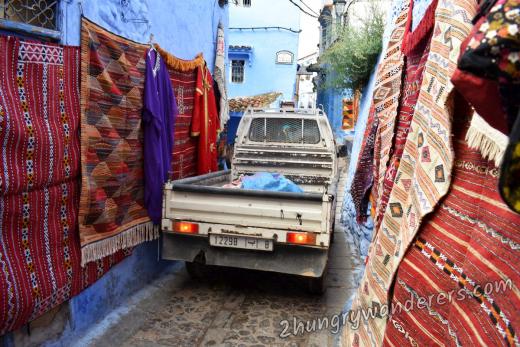
There are several factors that make driving in Morocco a taxing experience. First one are the other drivers - obeying the rules is not popular, there are many aggressively moving vehicles and dangerous situations are quite common. This applies mostly to the cities, but not only - what a western driver might call rude, reckless or crazy driving can be seen all the time, everywhere. In the cities traffic can get really bad and there is no such thing as "give way" - nobody gives it to you, it is up to you to "take way".
Secondly, the roads are in bad shape - watch out for potholes, bumps, suddenly appearing narrow sections of the road, animals. On main country roads and highways there are detours going through fields, some work in progress might leave you driving on long stretches of rough gravel.
Despite all that, self driving is a great way to explore Morocco, giving you great freedom. If you have solid driving experience, preferably outside western countries and are feeling adventurous I would suggest doing it, but be patient - it takes time, be careful - look in every direction, don't get distracted and be prepared - get insurance, bring your dash cam just in case.
Check out our video showing how fun is driving in the medina in Marrakesh:
Be prepared health wise
-
Vaccines: On top of your usual vaccines like a seasonal flu shot, recommended for Morocco are vaccinations for: Hepatitis A and B, typhoid, tetanus, diphtheria, measles, polio, mumps, rubella, influenza, and rabies. This is neither complete, nor mandatory list, consider your personal situation, like duration and planned activities, consult a travel vaccination specialist.
-
Medicine: Bring all the medications you take regularly for the duration of your stay plus supply for extra 5-10 days, just in case. It is always a good idea to carry a basic first aid kit, some of your preferred pills for pain, fever and stomach discomforts.
-
Basics: Don't forget to pack sunscreen, sunglasses, a hat and pocket sized bottle of hand sanitizer.
-
Insurance: Morocco may not be a very expensive destination, but quality healthcare there is far from cheap and we always recommend having a good travel insurance, you can get one from World Nomads
Food and drinks
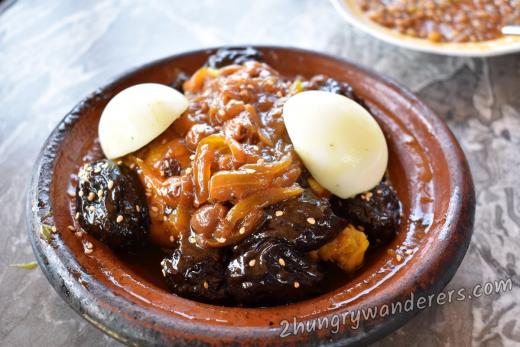
Moroccan cuisine is world famous for a reason, but words like "clean" and "hygiene" have a different meanings to different people, so if you want to enjoy some delicious street snacks here are some tips to avoid problems later.
-
Don't drink the tap water. If you want to be extra cautious use the words "no ice" when ordering a drink, freezing doesn't kill the bad things and ice is not made from bottled water.
-
Alcohol is expensive and not offered in every restaurant. If you can't have your dinner without beer or wine, make sure they sell alcohol first.
-
Go where other people go - a crowded restaurant is always a better choice than an empty one. Also, big sales volume means less chance for spoiled or old ingredients.
-
Inspect the place before ordering - does it look clean? For example, some street vendors have their sweets covered in flies, but one can find the same sweets, be it at a higher price, in bakeries, safely stored behind windows.
-
Be prepared with you vaccinations (read the section above) and always carry hand sanitizer. Choose the latter carefully, some might remind you of a hospital, but there are brands that have pleasant aromas or even some without smell that will not ruin your meal.
Hot water and heating? Maybe...
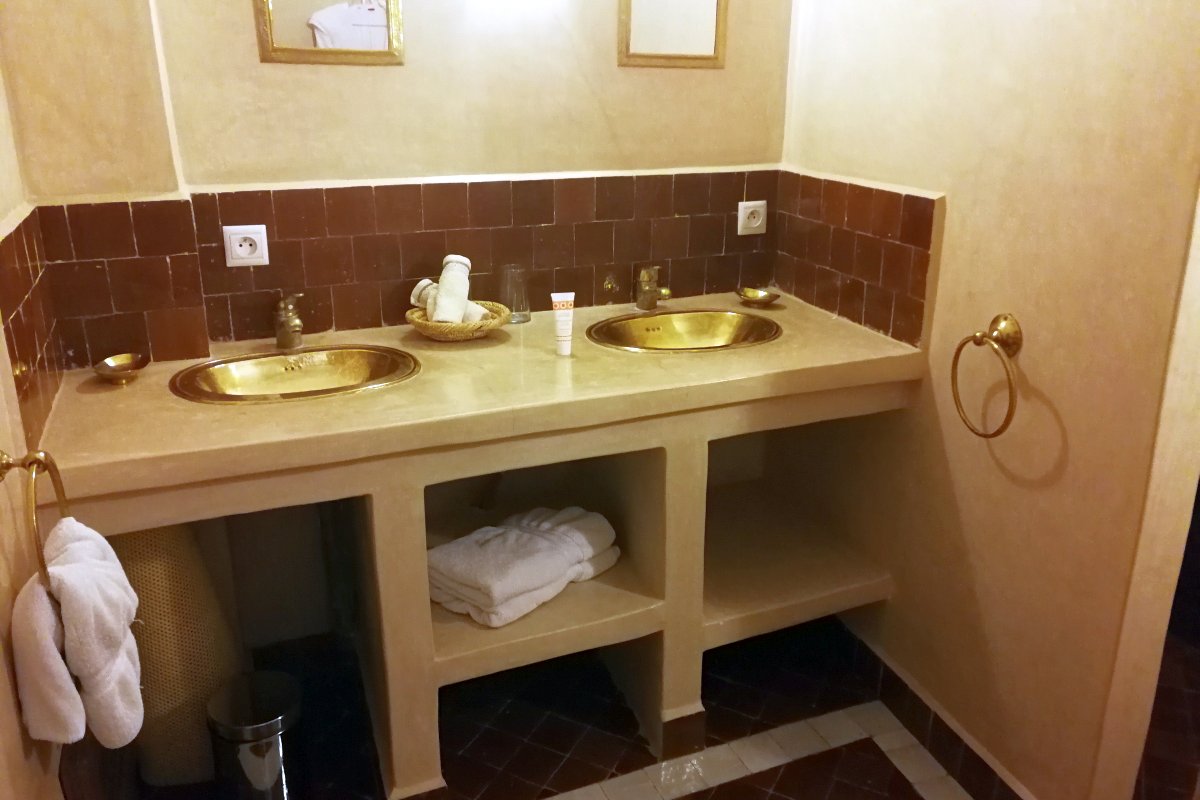
If you can take a hot shower in your hotel room consider yourself lucky. Two factors contribute to this problem - high cost of fuel and electricity and huge competition forcing hotels to keep prices low. Even in fancy hotels getting hot water might be something that doesn't happen every day. Do your research before booking a hotel, people usually mention not being able to shower in their reviews.
Lack of heating might affect less tourists, but it is as widespread as the cold showers. Many hotels offer a pile of blankets as the only option to keep warm. Some air conditioners can function as heaters, but not all. Again - research in advance.
Overpriced attractions

When a tourist place gets popular sometimes this brings out some of the worst human qualities such as greed. Unfortunately this happens in Morocco too. Some tourist attractions due to positive reviews and growing popularity increase entry prices (for tourists) two-threefold in less than a year. The most glaring example we encountered were Saadian Tombs in Marrakesh - 7 euro for a five minute walk where you can see some average tile work priced at half the entry to Sagrada Familia in Madrid - I cannot say it is worth it in any way. And the tombs are popular and have numerous good reviews, majority of which posted by people who paid less than 2 euro, not more than a year ago.
Best thing you can do is research the attractions in advance and decide how much (in monetary value) they are worth to you before you go. The information you find online cannot be trusted completely, as price increases are happening very often, what you expect to pay 2 euro per person might be now 4 or more.
Cats

Are you a cat person? You will love Morocco. Or hate it. There are many stray cats everywhere, which at a first glance looks like cat lover's paradise. After a closer look one may find out that many of those are starving, injured or sick. Best thing you can do is ignore and avoid them. Please understand, those kitties have nothing in common with the house cats from your country. They are not vaccinated, which means a bite or a scratch might ruin your holiday even if you have all vaccines and tetanus shots. They are not desexed, so their behavior is different from your neighbors sleepy tabby, I saw a tourist getting a deep scratch for just trying to pose with a cat on the streets of Marrakesh. Do not feed them, because this can provoke a fight and you might get some scratches in it too.
If you get bitten or scratched by a stray animal (or any animal) seek medical attention immediately, regardless of how inconvenient it may be, how much it will cost you, etc. Rabies is a deadly disease and if not given a vaccine on time there is no cure.
What to wear in Morocco
-
Men: Even if you are proud of your six pack keep it covered, along with your knees and shoulders.
-
Women: I would strongly advise against deep cleavages and shorts that keep the lower half of your butt exposed. It is best to cover ankles and elbows, always a good idea to carry a scarf. If you show a lot of flesh expect looks and not the curious and happy type, more of the disapproving and negative flavor.
Pickpockets
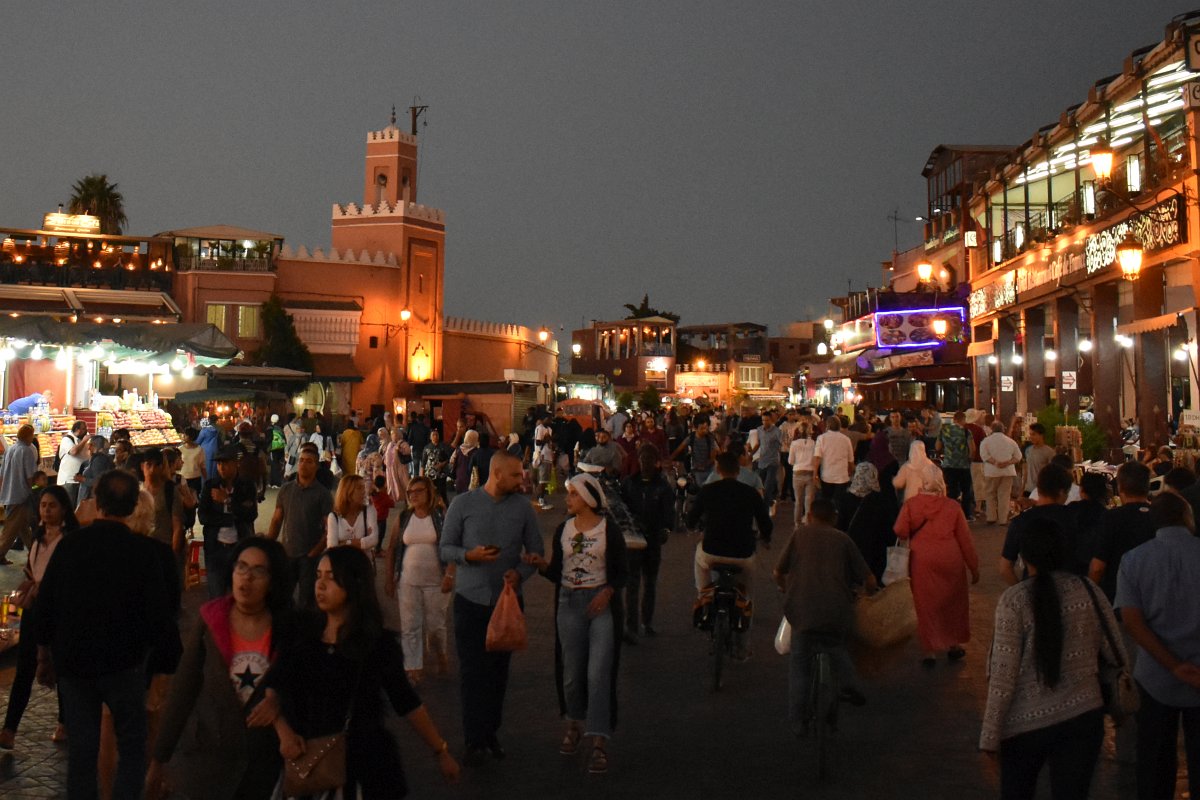
Can happen anywhere, but their favorite hunting grounds are crowded places like markets, busy streets and popular tourist attractions. Use common sense to reduce the risk - don't wear expensive jewelry and better to leave the $5000 watch at home. Do not leave money or valuables easily accessible, for example the back pocket of your jeans is not the best place to keep your phone. Do not carry and in no situation show huge amounts of cash. Split your pocket money in separate places, this way if somebody empties your left pocket you will still have money for a taxi or a meal in your right one.
If you get pick-pocketed do not expect any help from the police beyond maybe filing a report you can use later with your insurance company.
Haggle
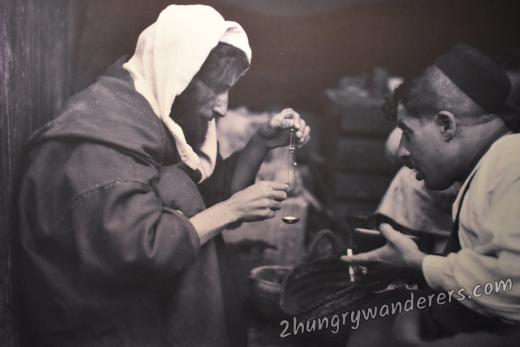
Get ready to haggle, it's a cultural thing, especially at markets and souvenir shops. Keep in mind that even marked prices can be negotiated, the labels stuck on items are just a starting point. If you love to haggle - go ahead, turn a simple purchase into a souvenir with a story! If you can't - decide how much you are willing to spend (or what this item is worth to you) and make it your last offer - if it is accepted - good, if not - move along.
Mosques - noise
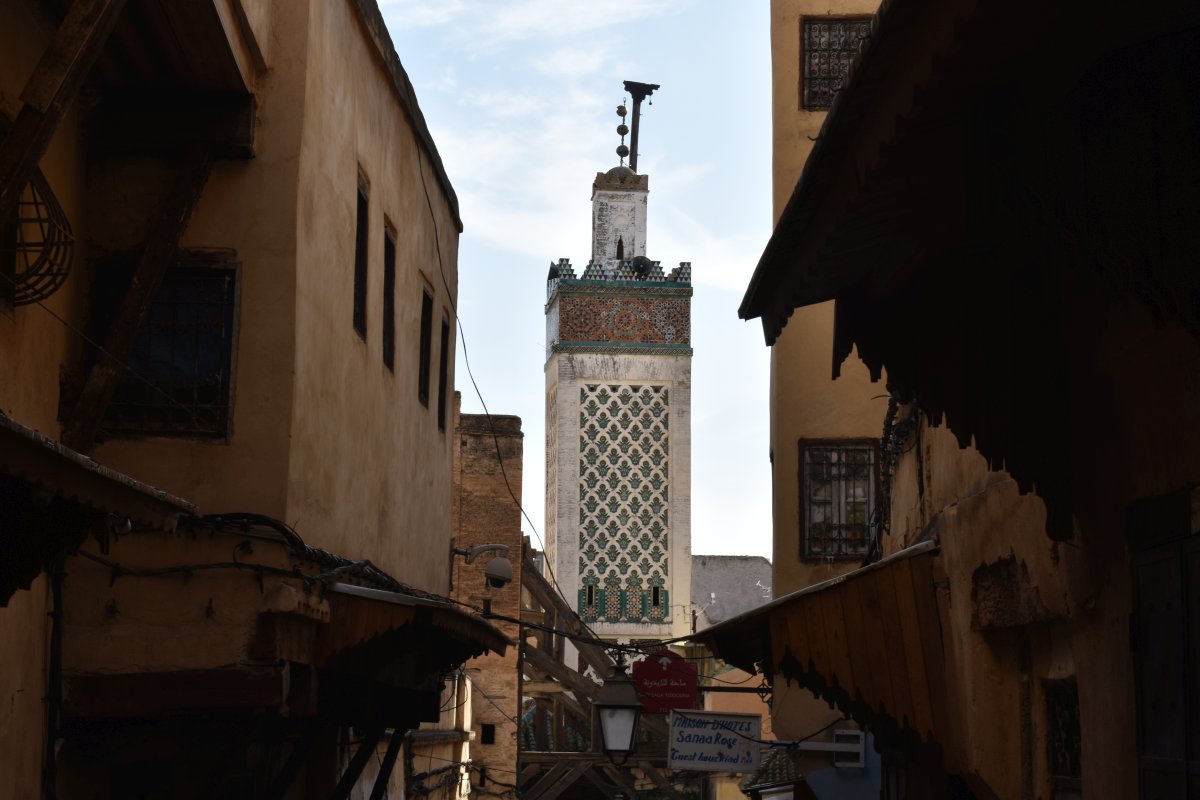
This one is very important, especially if this is your first visit to a Muslim country. In Morocco mosques are everywhere, can be big or small, but many times a day they all broadcast calls to prayers which can interrupt your sleep, multiple times per night. If you are a light sleeper or very sensitive to noise don't forget to bring earplugs or your favorite noise cancelling earphones. With that said, we were only waken up once (at 4 am) for our two weeks in Morocco - probably too tired of sightseeing most of the time.
Mosques - no entry for non-Muslims
If you are not a Muslim you are not allowed to enter any of the mosques and many other religious sites in Morocco, with the only exception of Hassan II Mosque in Casablanca. There are some articles advising on how to sneak in, but I would strongly recommend respecting the local culture, obeying the rules and as a result - admiring the mosques only from outside.
Comments